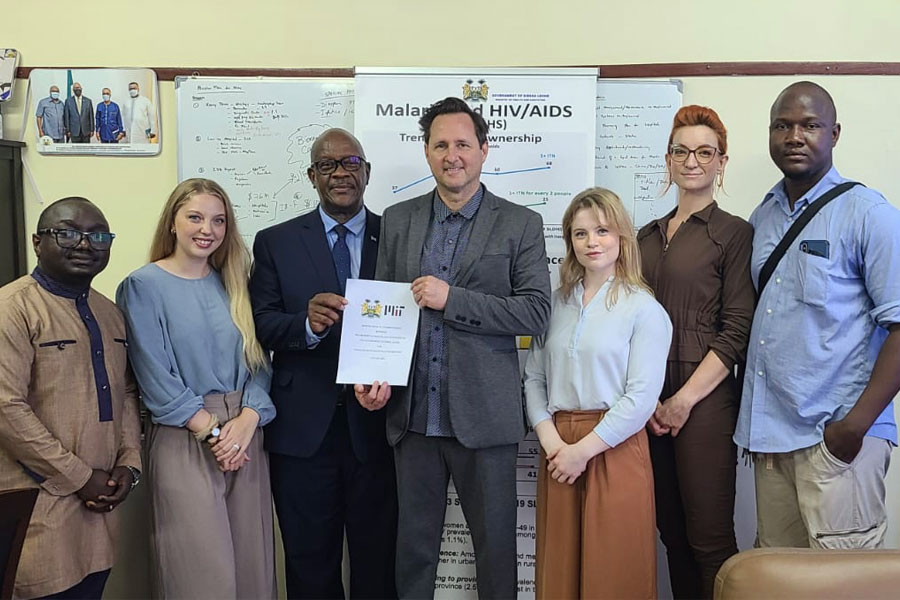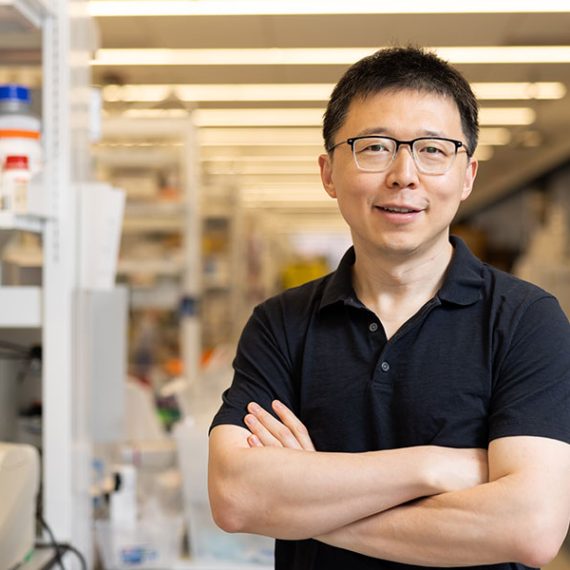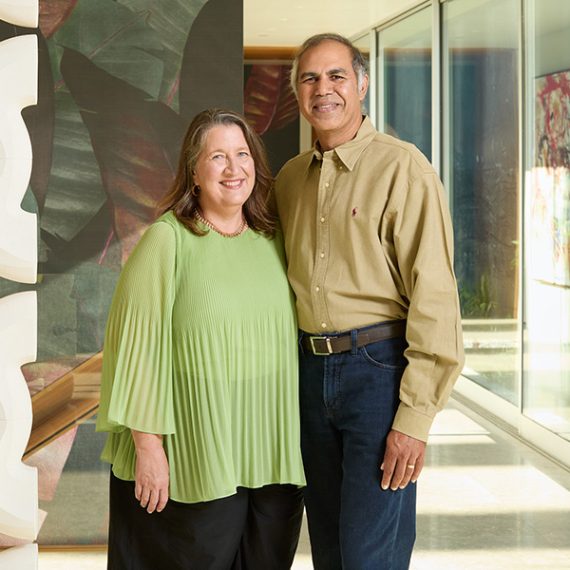New collaboration aims to strengthen orthotic and prosthetic care in Sierra Leone
Yang Center for Bionics and Sierra Leone’s Ministry of Health and Sanitation aim to develop an integrative approach to strengthen specialized care in the African nation.

MIT’s K. Lisa Yang Center for Bionics has entered into a collaboration with the Government of Sierra Leone to strengthen the capabilities and services of that country’s orthotic and prosthetic (O&P) sector. Tens of thousands of people in Sierra Leone are in need of orthotic braces and artificial limbs, but access to such specialized medical care in this African nation is limited.
The agreement, reached between MIT, the Center for Bionics, and Sierra Leone’s Ministry of Health and Sanitation (MoHS), provides a detailed memorandum of understanding and intentions that will begin as a four-year program. The collaborators aim to strengthen Sierra Leone’s O&P sector through six key objectives: data collection and clinic operations, education, supply chain, infrastructure, new technologies and mobile delivery of services.
Project Objectives
- Data Collection and Clinic Operations: collect comprehensive data on epidemiology, need, utilization, and access for O&P services across the country
- Education: create an inclusive education and training program for the people of Sierra Leone, to enable sustainable and independent operation of O&P services
- Supply Chain: establish supply chains for prosthetic and orthotic components, parts, and materials for fabrication of devices
- Infrastructure: prepare infrastructure (e.g., physical space, sufficient water, power and internet) to support increased production and services
- New Technologies: develop and translate innovative technologies with potential to improve O&P clinic operations and management, patient mobility, and the design or fabrication of devices
- Mobile Delivery: support outreach services and mobile delivery of care for patients in rural and difficult-to-reach areas
Working together, MIT’s bionics center and Sierra Leone’s MoHS aim to sustainably double the production and distribution of O&P services at Sierra Leone’s National Rehabilitation Centre and Bo Clinics over the next four years.
The team of MIT scientists who will be implementing this novel collaboration is led by Hugh Herr, MIT Professor of Media Arts and Sciences. Herr, himself a double amputee, serves as co-director of the K. Lisa Yang Center for Bionics, and heads the renowned Biomechatronics research group at the MIT Media Lab.
“From educational services, to supply chain, to new technology, this important MOU with the government of Sierra Leone will enable the Center to develop a broad, integrative approach to the orthotic and prosthetic sector within Sierra Leone, strengthening services and restoring much needed care to its citizens,” notes Professor Herr.
Sierra Leone’s Honorable Minister of Health Dr. Austin Demby also states: “As the Ministry of Health and Sanitation continues to galvanize efforts towards the attainment of Universal Health Coverage through the life stages approach, this collaboration will foster access, innovation and capacity building in the Orthotic and Prosthetic division. The ministry is pleased to work with and learn from MIT over the next four years in building resilient health systems, especially for vulnerable groups.”
“Our team at MIT brings together expertise across disciplines from global health systems to engineering and design,” added Francesca Riccio-Ackerman, the graduate student lead for the MIT Sierra Leone project. “This allows us to craft an innovative strategy with Sierra Leone’s Ministry of Health and Sanitation. Together we aim to improve available orthotic and prosthetic care for people with disabilities.”
The K. Lisa Yang Center for Bionics at the Massachusetts Institute of Technology pioneers transformational bionic interventions across a broad range of conditions affecting the body and mind. Based on fundamental scientific principles, the Center seeks to develop neural and mechanical interfaces for human-machine communications; integrate these interfaces into novel bionic platforms; perform clinical trials to accelerate the deployment of bionic products by the private sector; and leverage novel and durable, but affordable, materials and manufacturing processes to ensure equitable access to the latest bionic technology by all impacted individuals, especially those in developing countries.
Sierra Leone’s Ministry of Health and Sanitation is responsible for health service delivery across the country, as well as regulation of the health sector to meet the health needs of its citizenry.
For more information about this project, please visit: https://mitmedialab.info/prosforallproj2



